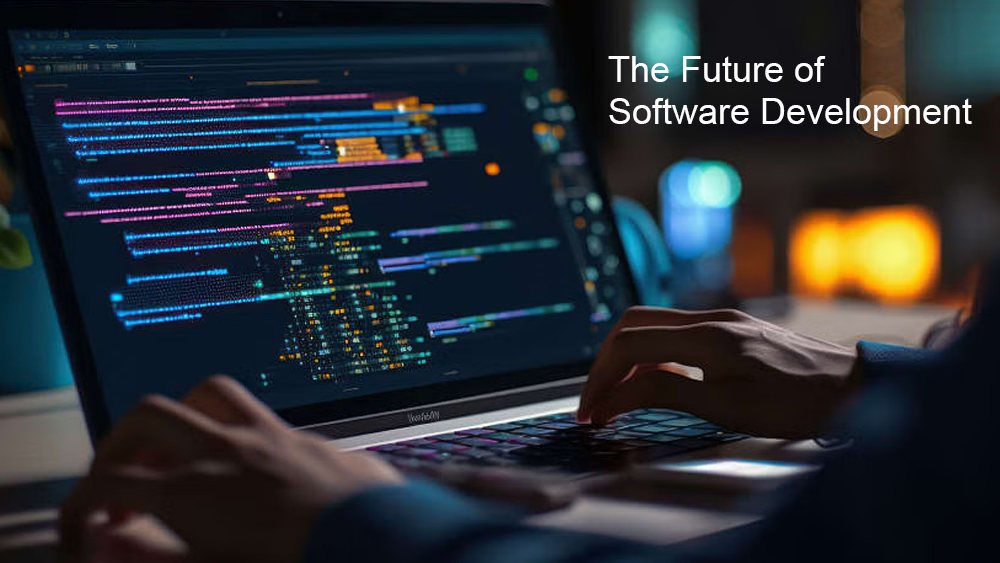
Date: 21th march 2024
The Future of Software Development: Trends and Predictions
The future of software development is likely to be shaped by several key trends and predictions:
Artificial Intelligence and Machine Learning: AI and ML will continue to play a significant role in automating tasks, improving decision-making, and enhancing user experiences across various software applications.
Low-Code/No-Code Development: The rise of low-code and no-code platforms will empower non-technical users to build software applications, reducing reliance on traditional coding skills and accelerating the development process.
Serverless Computing: Serverless architecture will gain momentum, enabling developers to focus solely on writing code without managing infrastructure, leading to greater scalability, cost efficiency, and faster deployment times.
Edge Computing: With the proliferation of IoT devices and the need for real-time processing of data, edge computing will become more prevalent, driving demand for software that can efficiently manage and analyze data at the edge of the network.
DevOps and DevSecOps Integration: The integration of security into the DevOps pipeline (DevSecOps) will become standard practice, ensuring that security is built into software development processes from the outset rather than being treated as an afterthought.
Containerization and Orchestration: Containerization technologies like Docker and Kubernetes will continue to be widely adopted, enabling developers to build, deploy, and manage applications more efficiently across diverse environments.
Microservices Architecture: Microservices architecture will remain popular for building complex, scalable applications, allowing teams to independently develop, deploy, and update individual components of an application.
Blockchain Technology: Blockchain technology will find applications beyond cryptocurrencies, particularly in areas such as supply chain management, identity verification, and smart contracts, driving demand for software developers with blockchain expertise.
Quantum Computing: While still in its early stages, quantum computing holds the potential to revolutionize software development by solving complex problems that are currently intractable for classical computers, such as optimization and cryptography.
Ethical and Responsible AI: As AI becomes more pervasive, there will be increasing focus on ethical and responsible AI practices, including fairness, transparency, and accountability in software development processes.
Overall, the future of software development will be characterized by continuous innovation, driven by advancements in technology, changing user expectations, and evolving business needs. Adaptability, lifelong learning, and a focus on solving real-world problems will be essential for developers to thrive in this dynamic landscape.